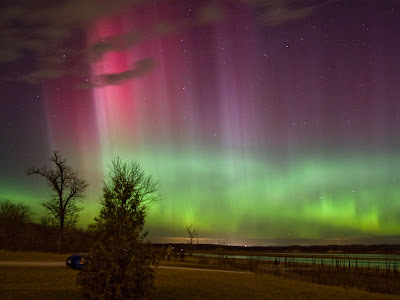Sunday, January 1, 2012
Iowa Caucus Thoughts
What are we looking for in an early caucus state?
Stephen Bloom characterized Iowa as a white, rural, economically depressed, methamphetamine addicted, Bible thumping state, where people don't leave their isolated communities, are out of touch with the country at large, and are essentially mired in a bygone era that makes their opinions on presidential candidates irrelevant.
But it assumes that we know what we want in an early primary state, that we are all agreed on those criteria that make a state ideal. I'm not so sure we are.
Iowa is not representative, and it is arguably not ideal, but what characteristics are we looking for? One is probably a state that is neither reliably Republican nor Democrat--you want to see what the independents are going to do. Iowa has a senator from each party, and has the entire 20 years that I have lived here. The Governor switches pretty regularly between parties, and in the 5 Presidential elections we have had since I moved here, we have gone for the Democrat in three, the Republican in 2, and most importantly, we have gone for the winning president in each of them.
Another important trait is that there be diversity--ethnic, economic, religious diversity, as well as rural v. urban diversity. Iowa has some disadvantages there--it is more white than the country as a whole, and it is older. Older might be an advantage. Older people are more likely to vote in the election than younger voters.
Lastly, an early state has to be open to the candidates. They need to participate actively in the process. Iowa takes this part very seriously. Professor Bloom accused Iowans of being from a bygone era, and it is true in this sense--they take civic responsibility and engagement very seriously. It also needs to be a place where candidates are safe entering people's homes and dialoguing with them. We are a state where it is still possible to leave your front door unlocked and not regret it. You might find that either backwards or refreshing, but it does tend to make people feel unthreatened.
I think one thing we don't want to do is to narrow the race too early. 'Winning' in Iowa is often a matter of getting 25% of the vote--if you get 2% you have no traction, but if you can muster 15-20%, you have a shot. Landing in the top three is a good showing, and a surprise winner can get a lot more attention and a shot at the brass ring.
Next, let's look at how a caucus functions. It is really different from a primary, where everyone just goes into a booth and marks a ballot and leaves. In a caucus, you all have to show up at the same time--usually at a school, a church, or a public library, and usually it is pretty cramped space. That is a big hurdle right there--you can't just drop by on your way to or from work and get it done. Then you have to be prepared to spend 2-3 hours to complete the process. The Republicans and the Democrats do it differently--for the Republicans, the vote is a secret ballot, but the Democrats have you huddle around the candidate of your choice. Then all the voters are counted, and a total is arrived at, and then the tally for how many supporters for each candidate is done. You need at least 15% of the total voters in order to have your vote count--so after the first alignment, caucus goers have the opportunity to try to get voters for candidates that do not have 15% to come over to their camp. There is dialogue about why voters have chosen a particular candidate. You stand up in front of your neighbors and say who you are voting for and why. There is nothing private about it.
So, what does such a process tell us? One thing it told us in 2008 is that a largely white state will stand up in front of their neighbors and vote for a person of color. And that guy went on to win.
Subscribe to:
Post Comments (Atom)



No comments:
Post a Comment